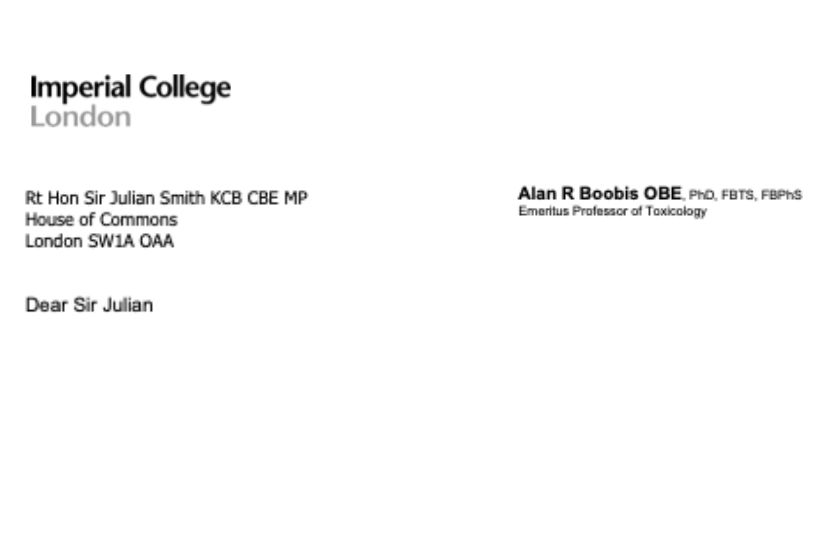
Professor Alan Boobis, OBE, PhD, FBTS, FBPhS, Emeritus Professor of Toxicology at Imperial College London and Chair of the Committee on Toxicity of Chemicals in Food, Consumer Products, and the Environment (COT), has formally responded to an inquiry from Rt Hon Sir Julian Smith KCB CBE, MP for Skipton and Ripon. Julian’s inquiry sought clarification on the COT's work regarding lead contamination in the UK food chain, following a recent investigation by the Financial Times.
The Financial Times report highlighted the environmental risk posed by over 8,500 abandoned mines across the UK, with 412 of them located within Julian's constituency of Skipton and Ripon. These sites have been shown to release toxic metals, including lead, which can accumulate in waterways and soil, entering agricultural systems and potentially contaminating food sources.
In his response, Professor Boobis acknowledged the potential risks posed by lead exposure, particularly in vulnerable populations such as infants, young children and pregnant women. He reiterated the findings of the COT which has assessed the risks from dietary lead exposure on several occasions, most recently in 2013 and 2016.
“The main” concern stated Professor Boobis, “is developmental neurotoxicity in young children, with evidence showing that the developing brain is more vulnerable to the neurotoxicity of lead than the adult brain; this is associated with a reduced Intelligence Quotient (IQ) score and reduced cognitive functions in children exposed to high levels of lead.”
Professor Boobis went on to explain that while the risk from dietary lead is generally low for most of the population. However, people living in areas with high geological lead levels or consuming lead-shot game are at greater risk. He emphasised that "exposure should be as low as reasonably achievable" and reassured that the Food Standards Agency (FSA) is actively monitoring lead levels in food, ensuring consumer protection.
The letter also addressed concerns raised by the Financial Times report about the contamination risks associated with abandoned mines, noting that the FSA is planning to review dietary lead exposure as part of its ongoing risk analysis programme. "Hot spots," such as areas near old lead mines, will be specifically assessed, and the COT will provide input on any identified risks.
In response to the letter, Julian expressed appreciation for the assessment provided by Professor Boobis and the COT. Julian said, “The health and safety of constituents is of utmost priority. I thank Professor Boobis for his detailed response and I will continue to work with the relevant agencies to help mitigate the risks from lead contamination and ensure that our food chain remains safe.”
You can read Pressor Boobis’s full letter below.

